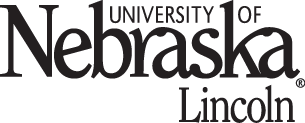 Interviewer
InterviewerAll right, this is disc number two of an interview with Norm Smith on October 7th, 2010. In the first half of the interview, Norm told us about getting into the Army, how he became part of an Airborne Division. Now he's going to discuss with us his experiences in Europe, specifically coming upon a concentration camp.
Norman SmithOk. Well, I went aboard the Queen Elizabeth. This was the QE1, not 2, there was a QE2, the Queen Elizabeth that I went, this part of the Cunard Line, the Queen Mary was the twin ship, and so I went up overseas under Queen Elizabeth, and you were just 15,000 of us is the best way I can say. Wherever they're going to use you as a replacement when you get over there. And I landed at Glasgow, Scotland. I trained directly to Southampton, and we were just getting on a ship to go across the channel. They pulled 40 of us back because it had been a case of measles. So they were concerned about that. The 40 of us quarantined. All of the men that I was with, as far as I know, went to the 17th Airborne, and very few of those guys came back from that. They made the last jump over the Rhine. That was over the Rhine. It's commonly called a bridge too far, if you read the novels. I was held there right near Bastogne in an area called Alsace-Lorraine. For a few days, and then the remnants, what paratroops there were left, we were shipped to the 101st Airborne. They had been surrounded at Bastogne. There were 26 men left in my company when I joined that company. All the rest were either killed or wounded. I joined them, and it was about roughly the latter part of February of 45. First of April, we were called to the final drive. We didn't know it was the final drive at the time, but we were dispersed along the Rhine River. We went up to the front lines there.
And the next thing we were removed, and we were removed southward. We had no idea where we were going, except we knew that the Germans were attempting to, their escapes in the south. Italy had not capitulated yet. That is northern Italy, so the Germans were trying to get into that area. When we were moving, it was just a matter of heading down right, just like driving down to St. Ed basically. You don't know what's happening. You know that there's a battle going on. You can hear the explosions. You can see the smoke. What struck me was at one point where it was stop and go road traffic, and you didn't know what the devil was going on. One part of the highway was covered with smoke, just like a brush fire. It was a pungent type of odor in that. The word came back. He said that on the left-hand side of the road, there was a building that was filled with people. He said it had been set on fire. The people were burning in there. That was the introduction to the Holocaust right there.
We finally got past that finally got up to the edge of this area. This was right near the town of Landsberg, Germany. The earliest troops in there is the armored unit that was ahead of us. They were throwing the gates open. There were emaciated individuals wandering, but most of them were afraid to come out even though the gate was open. They just simply . . . We stared at them, and they stared at us. They couldn't believe they were free, and we couldn't believe what we were seeing. Walking skeletons. Basically, it's a story repeating itself over and over again. You had to watch where you walked, because wherever these people congregated, they had diarrhea. They were defecating. No modesty. To go, you went right there. He went to pools. I often describe this comparable thing we have the way we keep cattle today. You don't use your best shoes to walk through the concentration of cattle and [unclear] with human beings.
We went basically into town, took over a building, and billeted it down for the night. We came back the next day to make a thorough search of the area. Germans were very meticulous. That area had been all reforested. Pine trees or coniferous trees in straight rows. You could measure from one row to the next, no underbrush left. We were told, you're going to make a sweep through the road, through the woods, to pick up any stray prisoners. Soon it became evident that those people who were healthy enough, who had enough stamina left, said, "I'm leaving." They went as far as they could. They just found a dignified place to die at a tree and died and body after body after body. I took my rifle, I didn't want to touch them. They were just alive with vermin. My rifle used it as a tool and stick under the coat. I wanted to see if the person was alive. For every one that I found were dead. Body after body in the woods. This particular suite took us about three hours to go just around the administration building and come back in. We were looking for anybody who could speak English. We could find somebody who spoke English between conversion. We had a few of the fellows who were fluent in German. We also found if they, using German as the basic language, you could also converse with the Russians. So anyway, we made the rounds. We came back.
We called one individual that I noticed at the beginning that all of a sudden he's pushing his way through the crowd. He's got a little cap on. He's got a stick. He's got a pouch with something very precious in that pouch. He's leaving. He's definitely going somewhere. I had watched him go through to begin with 40, 50 yards down the road and then he sat down. I didn't think anything more about it. I came back after about three hours. I looked and he said, it's funny he's still sitting there. I went back down there and as I got within a few feet of him, I realized that he said he died when he sat down. That's what I was doing. The stick was still over his shoulder. That was the end of his life.
That kind of an impression is something you do not leave. You just don't leave it. It stays with you. It wasn't until this last excursion to Washington, D.C. that I met a guy who he said, we were with you. He was with an armored outfit. I've been trying to converse with him since but I haven't been able to get an answer from him. He said, we were the armored unit ahead of you. I know he was the 12th armored. That's any aspect of that experience is really the Holocaust. You use the people in that area that were being used as slave laborers. The Germans did not handle the bodies. They didn't do any of the dirty work. They selected certain people who were called capos. If you want to stay alive, then you'll pitch them into the ovens. You always go through the dirty work. The Germans directed it, but they didn't get their fingers in it. I use the word Germans collectively, but a certain strata in our society would function the same way. You have the power prestige and the work within the community, you're the guy that gives the orders.
InterviewerDo you have any idea how many were in the camp when you arrived?
Norman SmithI don't know how they would ever figure that out. There are other estimates. Everyone argues, oh my goodness, there's six million? No, no, no, no, no. They'll argue about how many, no one knows. There's no way. The main thing is that the slave labor became a problem because these people have to be fed. And when they die, you've got to do something with the body. The stories they heard, since verified, I've done a lot of reading. You used every bit of the human body, every bit. Bones are dried out. Take the bones out of the crematorium and grind them up. Put them back on the field and grow the crops. I have a story of one guy. He did live over in Norfolk. He said that my job was to clean out those ovens every day. He said when I had to take the cave out and spread it on the vegetable gardens. They worked them 12 hours a day and bought a liter of a soup made of some strange meat. You never knew what kind of meat had been thrown in there. Just carrot peelings, potato peelings, and cooked that into a type of soup. That's what they were. One slice of bread. A lot of testimony. The guys that were American prisoners fared somewhat better if the Germans allowed the Red Cross packages to get in. That was a highlight. That was one aspect of it. I've never met anybody yet that had much to say, except it was tremendously emotional experience. We were shipped around all over Europe in railroad cars. You go to the Holocaust Museum today and they brought one of those - a car back that had been used for that. When they built the museum, they situated the car and then they built the museum around the car. Otherwise, it would be quite a feat to get it up there.
I don't know what to say. I've been asked many times. I'm stunned, bewildered. You can't believe it. Once you've seen it, you don't forget it. How systematic they were. The more and more people they had to deal with, the more people in a different way they had to work with them to figure out how to get rid of the evidence.
An Austrian banker who couldn't speak English, he'd been in there for six years, eight years. He demonstrated how thin he was by taking his hands and putting them together right at his crotch. If you try this, you realize that gives you about this much space. You go all the way around your leg and he had room to spare. Once you hear the stories of these people, it's very consistent. If you were a displaced person, which the Germans used a lot of that, they went to Slovakia and Romanian. Right now, the Roma is in the news about what they're going to do. Anyway, Gypsies, for example. These people, these are the undesirable people, that's the way they were classified. They're imperfect period - get rid of them. I was making a presentation at Fullerton one time, and the teacher there had invited a Polish priest named Father Fleishik. When I was showing pictures of the crematorium at Dachau, why he interrupted me and he said, "I carried bags of cement to build that building. Anyone who had any leadership in the minorities, they wanted to get rid of or control. They're not going to let anybody in there that could be adverse to what they were doing." They actually had train loads of bodies. It's, as I say, it's just the same thing over and over again.
InterviewerYou weren't in any way prepared for this.
Norman SmithOh God no. We had a total surprise, I don't recall anybody that said, oh yeah, I remember they were talking about this. The Allies agreed not to bomb Auschwitz and the bigger, they could have obliterated it, as far as that was going, so there's lots of controversy left now.
InterviewerWell, Norm, I want to thank you again. This is pretty intense to listen to, I'm sure. There's nothing compared to what it was to experience. Thank you so much, and maybe next time we visit, we can talk about other parts of your experience.







